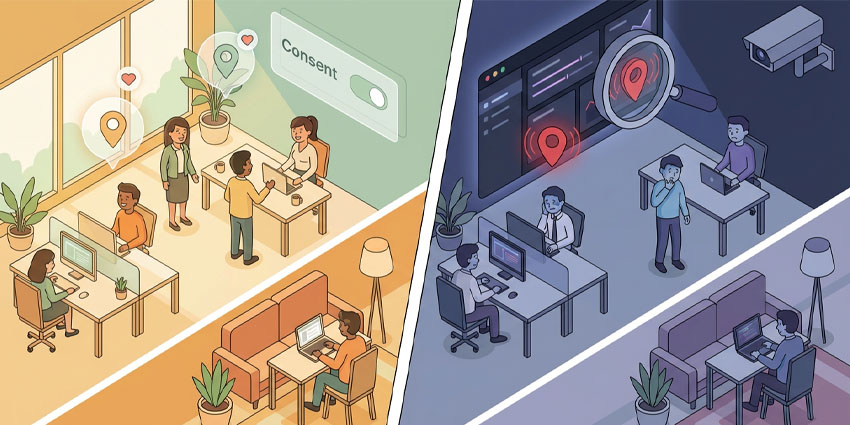How ready are you or your customers for a critical communication failure?
Service outage, malicious actions, natural disasters, supplier failures – whatever the cause, the stakes are high. If not an outright breach of compliance regulations, any interruption or data loss can impact catastrophically on revenue generation and brand reputation.
When things go wrong – particularly for providers of increasingly complex and mission-critical unified communication (UC) services – affected organisations must be able to mitigate the impact.
A business continuity plan is required: a bespoke and rigorously-tested set of responses and actions ready and waiting in the wings for when disaster inevitably strikes.
The specialist architects of such plans are often highly expert and pretty expensive; so much so that outsourcing is far more cost-effective than employing in-house. Picking that third party partner can be the difference between total loss and swift recovery.
“Anytime, anywhere, any channel communication is a new kind of currency for organizations of every type – providers of the technology on which that 24/7 service availability depends must be able to react positively when things go wrong,” says Dr Scott Allendevaux, senior practice lead at UC professional services firm Allendevaux & Company, whose comprehensive and scalable business continuity offer enables precisely that.
“The complexity, cleverness, and inter-dependence of a modern communication tech stack means the risk of outages is not only enhanced in and of itself, but the ripple effect of an interruption can quickly bring a business to its knees. Whether for providers of a UC service or the end user businesses that cannot function without it, a robust and, for some, a legally-compliant continuity plan is essential. Outsourcing to experts is the most cost-effective way of provisioning that.”
Although delivering huge productivity and efficiency benefits, the omnichannel, multi-vendor, integrated nature of many organizations’ IT and communication systems present an ever-increasing number of potential vulnerabilities and back doors through which bad actors are able to step.
For example, communication was once all about voice but today the world does much of its business via video conferencing. Plus, that former voice dominance relied upon traditional on-premise PBX telephony whereas today everything is powered by cloud-based technology.
“Businesses must be far more aware of their frailties in order to protect themselves from the risks,” says Ken McGuinness, Allendevaux’s Head of Business Continuity.
“It’s not just about the cost of disruption in terms of lost revenue or productivity, there is also reputational damage to consider plus, for regulated businesses such as banks, insurance companies and law firms, there are the fines that can be imposed by regulators when systems are compromised or services interrupted. If you are their UC provider, the requirement to manage any disruption falls on you.”
Allendevaux and Co. works with its customers in advance to plan what it would do in the event of a disruption. It asks what are the critical services? What are the IT systems on which delivery of those services depend? Once those are fully understood, it asks what threats the business faces, both internal and external, and conducts what it calls a ‘horizon scan’ to identify what the risks of the future might look like. What would the business do if it suffered a ransomware attack, for example. What about a denial of service attack; the closure of a site due to fire or flood; or the loss of key staff?
Then it is all about response. What needs to happen? Who needs to be involved? Which regulators must be engaged? How must communication with all of the stakeholders be handled?
Increasingly, UC providers are being asked to demonstrate their business continuity provision as part of any new contract bid – turning it from a once ‘nice-to-have’ into a modern ‘must have’.
“It’s all about helping businesses construct procedures across, say, six or seven different policies to ensure that things are happening correctly,” says Dr Allendevaux.
“Devising an escalation list; knowing where it is and how to act upon it. For example, does someone in a certain country at 2pm know what to do and who to contact if Head Office is in a different country where it is 4am. We bring together all of those procedures and best practises in the form of a particular standard which not only responds appropriately to an incident but which also stands up to the rigour of a formal third-party audit.
“Half of our experts have a background in UC so we understand the technologies, the protocols and the data flows. How gateways, gatekeepers, registration devices, and all the different hardware works doesn’t need to be explained to us because we have grown up in that space.”
What’s for sure, whether it’s on a large enterprise scale or one tailored more to the less complex needs of a small-medium-sized business, outsourcing resilience and recovery to those for whom it is a daily obsession is a smart call.
To learn more about how Allendevaux & Co can help your and your customers’ businesses mitigate the issues of service interruption, click here.







